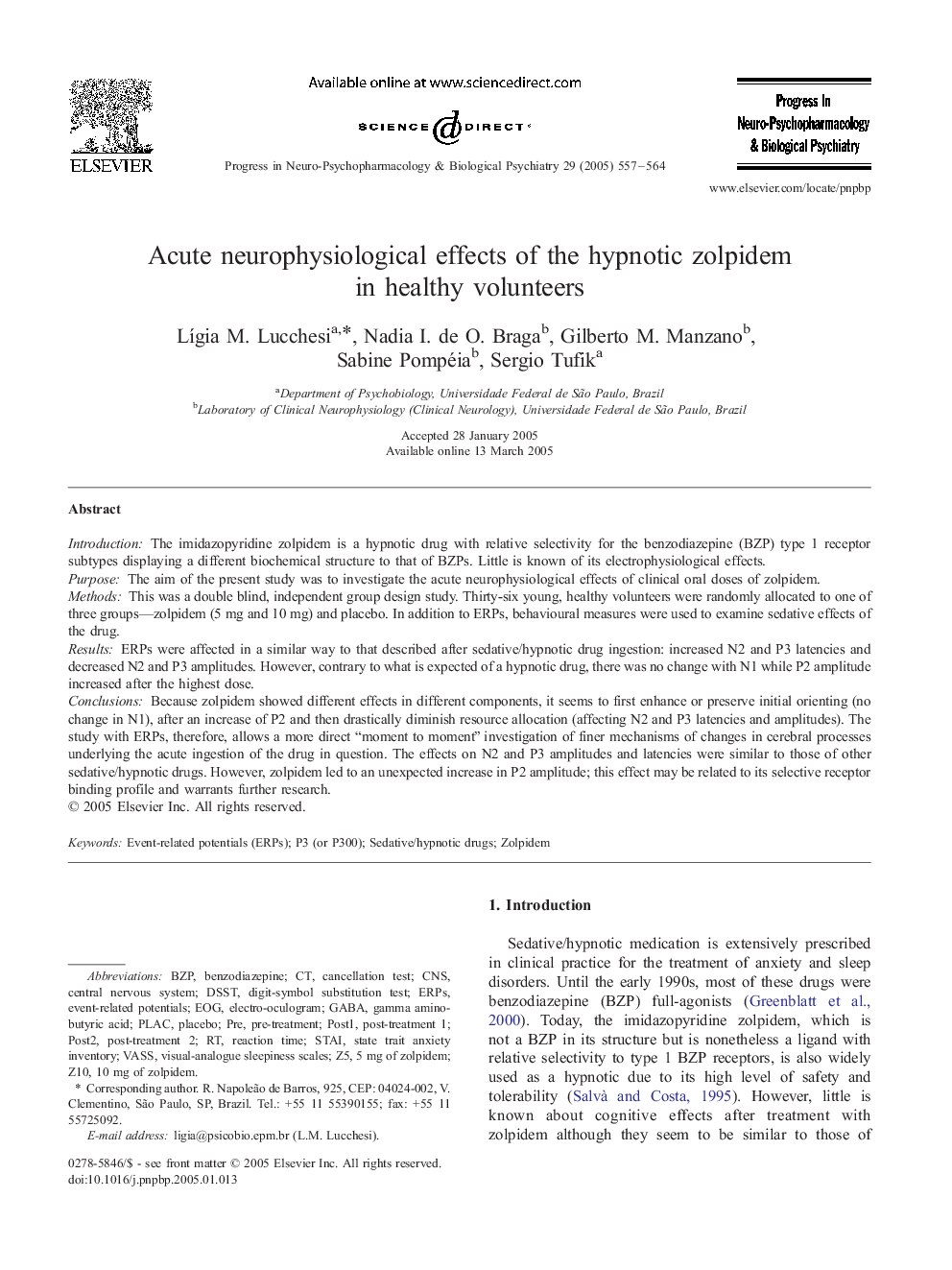| Article ID | Journal | Published Year | Pages | File Type |
|---|---|---|---|---|
| 9016418 | Progress in Neuro-Psychopharmacology and Biological Psychiatry | 2005 | 8 Pages |
Abstract
Because zolpidem showed different effects in different components, it seems to first enhance or preserve initial orienting (no change in N1), after an increase of P2 and then drastically diminish resource allocation (affecting N2 and P3 latencies and amplitudes). The study with ERPs, therefore, allows a more direct “moment to moment” investigation of finer mechanisms of changes in cerebral processes underlying the acute ingestion of the drug in question. The effects on N2 and P3 amplitudes and latencies were similar to those of other sedative/hypnotic drugs. However, zolpidem led to an unexpected increase in P2 amplitude; this effect may be related to its selective receptor binding profile and warrants further research.
Keywords
Related Topics
Life Sciences
Neuroscience
Biological Psychiatry
Authors
LÃgia M. Lucchesi, Nadia I. de O. Braga, Gilberto M. Manzano, Sabine Pompéia, Sergio Tufik,
